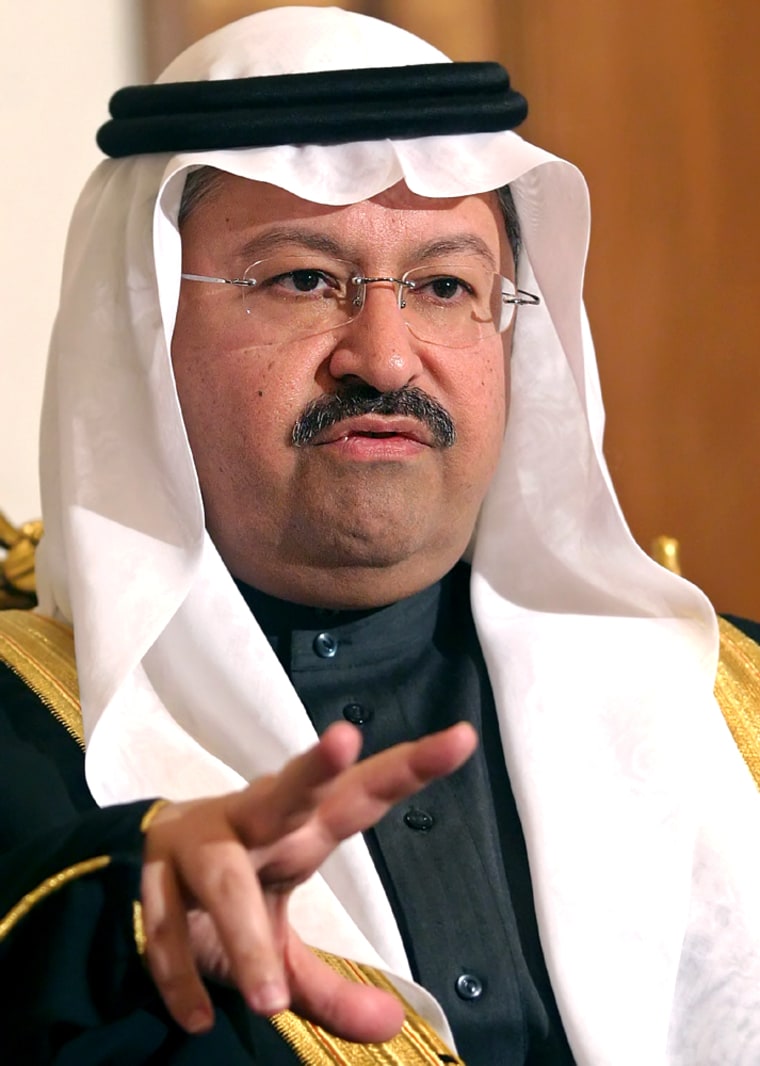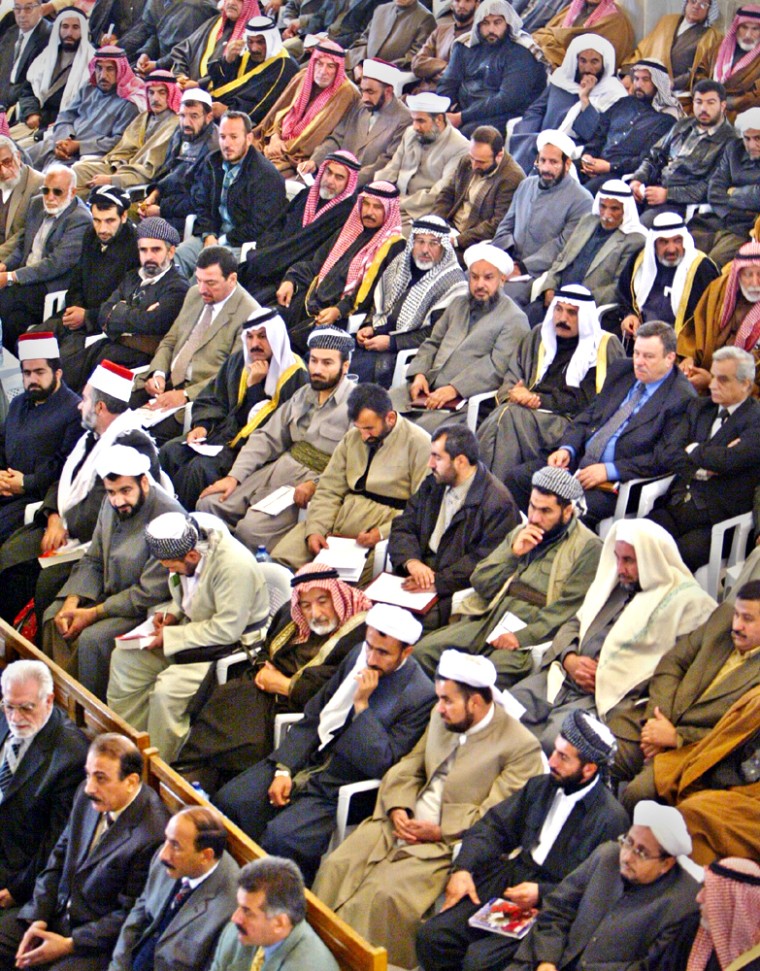With unceasing violence in Iraq, an increasing number of Iraqi interim government officials are calling for the postponement of Jan. 30 elections to ensure a higher Sunni voter turnout. And on Tuesday, the interim president urged the United Nations to assess the feasibility of the elections, an indication of how deeply insurgent attacks have shaken the resolve behind the polls. The country’s electoral commission, and the United States, insist that voting take place as scheduled.
Sunni Arab clerics have called for a boycott and Iraq’s largest Sunni political party announced it was pulling out of the race because of poor security that has seen insurgents kill scores of Iraqi security forces, as well as several election officials, in recent weeks.
On Tuesday, gunmen killed the governor of Baghdad province, Ali al-Haidari, and six of his bodyguards in an ambush, officials said. Al-Haidari was the highest-ranking official killed since the former president of the now defunct Governing Council, Abdel-Zahraa Othman, was assassinated in May.
“Definitely the United Nations, as an independent umbrella of legitimacy ... should really take the responsibility by seeing whether that (timing) is possible or not,” said interim President Ghazi al-Yawar in an interview with Reuters on Tuesday.

Yawar, whose post is largely ceremonial, said the elections would fail if a raging insurgency kept a significant number of Iraqis away from voting stations.
In Washington, White House spokesman Scott McClellan condemned al-Haidari's assassination, acknowledging security “challenges” but sticking firm to the country’s timetable for elections.
“For much of the country, the situation is secure enough to move forward on holding elections,” McClellan said. “There are a few areas that we’re continuing to work to improve the security situation, so those areas will be able to have as full a participation as possible in elections.”
Role for Egypt?
Several proposals have been floated lately to counter the threat of a low Sunni turnout that would undermine the legitimacy of the vote — the country’s first free elections since monarchy in 1958. Iraqis are to choose a legislative assembly to draft a constitution.
Defense Minister Hazem Shaalan told reporters in Cairo on Monday that he has asked Egypt to try to persuade the Sunnis to participate in the elections. “And if they agreed, then we could postpone the date to let all Iraqis go to the polls in one day,” he said.
It is not clear, however, who the Egyptians would negotiate with — or if they would in fact take up the offer — in the absence of a definitive Sunni leadership in Iraq that parallels the hierarchical Shiite religious authority. The Egyptian government, known for its crackdown on its own Muslim Brotherhood movement, is also likely to refuse to hold talks with a party like the Iraqi Islamic Party that withdrew from the race to convince it to reverse its decision.
Iraq’s ambassador to the United Nations last week suggested the election could be delayed by two or three weeks. In an opinion piece in The Washington Post, Samir al-Sumaidaie proposed that idea and a host of others, including reserving some seats for groups who do poorly if their supporters don’t vote — a clear reference to the Sunnis.
Al-Sumaidaie suggested a number of seats could be left vacant for the Sunni provinces, where elections could be held after Jan. 30.
“Such a solution would have the merit of satisfying all those who want elections as soon as possible, thus denying terrorists a victory while producing a legitimate elected government that could focus on stabilizing the country,” he wrote.
Commission stays course
But Fareed Ayar, a spokesman for the Independent Electoral Commission, seemed adamant that there would be no delay. “The commission is still working on holding the elections on its scheduled time and according to the timetable we have,” Ayar said Monday.
Commenting on the proposals to postpone the elections, Ayar said the commission has not been officially notified of any such ideas. “We read and hear about those statements in the newspapers and the media like others, but we have not formally received anything,” Ayar said.
The Shiite leaders, who are backed by Iraq’s most influential cleric, Grand Ayatollah Ali al-Sistani, reiterated the Shiite’s staunch stance on going ahead with the elections as scheduled, saying postponing the vote would only create more chaos.
Shiite leaders of the Unified Iraqi Alliance, a mainstream Shiite coalition running in the election and one that is expected to do very well, reached out to Sunni Arabs on Sunday. The group called for talks to avert sectarianism and civil war.
Cairo-based political analyst Wahid Abdel Meguid downplayed calls for postponing the elections to reach out to Sunnis, saying such attempts “do not matter much in the Iraqi political arena, where the powerful players, namely the Shiite leadership is insistent on holding the elections on time.”
“It is a last try, and it could be sincere,” Abdel Meguid said. “But it pales amid the majority’s stance.”
U.S. view
A U.S. embassy spokesman said there has been no talk between the Americans and Iraqi officials on delaying the vote.
“Everything we do in this embassy is to support the Iraqis to have free, fair and inclusive elections on Jan. 30 of this year,” Bob Callahan said. “We expect that there will be elections on Jan. 30 and only on Jan. 30 and that the result of those elections would be recognized and honored. That’s what the law calls for ... and that’s precisely what we’re working toward.”
Iraqi fundamentalists have taken up al-Qaida leader Osama bin Laden’s claim, made a week ago, that elections are un-Islamic because democracy means the people, not God, are in charge.
Also Tuesday, hundreds of Sunni Muslim clerics, politicians and notables warned in a meeting that holding the elections on Jan. 30 would marginalize the long-dominant Sunni minority and risk civil strife.
“The conference warns against marginalizing any Iraqi sect, and holding elections in such difficult and complex conditions will marginalize a large section of the Iraqi people, which could lead to divisions,” they said in a closing statement.
